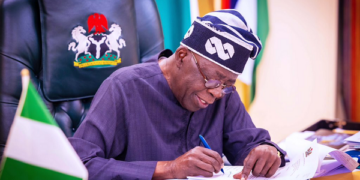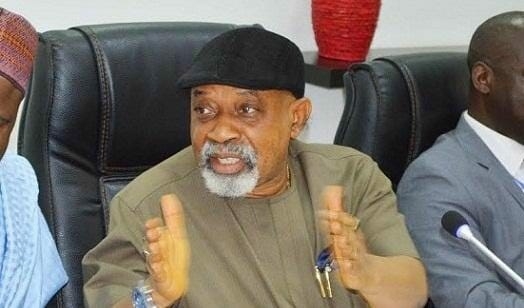Academics and labor relations specialists met in Ilorin, the capital of Kwara State, on April 25 and 26, 2023, to discuss ways to permanently halt frequent strikes, particularly those by teachers at the country’s institutions.
The leadership and members of the newly registered Congress of Nigerian Universities Academics (CONUA) were given a 2-day training workshop by the Michael Imoudu Institute for Labour Studies (MINILS), Ilorin, Kwara State, and all of the participants agreed that strike actions had harmed the nation’s university education system more than they had helped it.
They bemoaned the erratic academic schedule that kept the students on school for years past the allotted time to finish their courses.
The participants also reasoned that the universities unstable academic calendar is the major reason why Nigerian students find solace in foreign universities which at times endangered their lives, citing the current example of the trouble that the Nigerian students are going through in Sudan.
In his opening remarks, the CONUA chairman, Comrade Niyi Sunmonu, had thanked the management of MINILS for organising the training programme for members of the newly registered union in the nation’s university system.
He added that: “our expectation is hinged on our core belief – uninterrupted academic calendar without our welfare suffering,adding that, “strike takes so many things away from students, especially time which is irretrievable.”
Saying that the union will not be confrontational in addressing issues affecting its members’ welfare, Sunmonu said:” When you are confrontation, you create a bigger problem than the issue that led to the strike in the first place. We are not afraid of the government, but we shall not be confrontational.”
The CONUA chairman clarified that their expulsion by the leadership of the Academic Staff Union of Universities (ASUU) during the recent strike action by the university lecturers, necessitated the formation and registration of the new academic union.
Declaring the training programme open, the director general of MINILS, Comrade Issa Aremu said the workshop on “Building Harmonious Labour-Management Relationship As a Tool for University Education Stability and National Development” was jointly organised by the Institute and the office of the registrar of trade unions for the newly elected executive members of CONUA drawn from various universities in the country.
Aremu observed that the inclusive nature of universities with diverse academic staff, non- academic mass of workers and university administrators makes work relations “all comers affairs” with respect to inevitable grievances and grievance handling process.
He, however, said union officials in academic Institutions require specialised knowledge and wisdom about industrial relations through training and retraining to manage the challenges arising from the dynamic world of work.
While commending the two ministers of Labour for facilitating the capacity building for CONUA officials, Aremu said the incessant disputes in universities are reflections of deep knowledge gap on the part of all stakeholders about collective bargaining process, mediation, arbitration, social dialogue and legal framework guiding industrial relations management.
“In today’s world of work, direction has shifted from the traditional methods of organising, mobilising and collective bargaining to a more constructive, social dialogue, cooperative partnership and collaboration through social democratic unionism in conformity with best practices.
“The university management and union leaders must be articulate and embrace the modern industrial relation skills in organising, mobilising, bargaining and management in general,” the director general stated.
Aremu also urged the organised labour in trade unions to forge a sustainable partnership for decent work agenda and national development with the in-coming administration of the president- elect, Asiwaju Bola Tinubu.
He said the inauguration of the new administration of Tinubu will offer a new opportunity for unions, governments and employers to “rethink and deepen Nigeria/ ILO decent work agenda with respect to secured and well paid private and public jobs, freedom of association, productivity and workers’ motivation.”
He noted that the president- elect values labour as a critical success partner in his commendable Renewed Hope agenda through mass youth employment programme and end to avoidable strikes in universities through social dialogue.
Aremu said the record of labour administration of the president-elect as former two-term governor of Lagos from 1999 to 2007 and campaign programme of APC positioned him “as the possible best labour-friendly president” in the waiting.
The former labour union leader added that Tinubu was the first Presidential Candidate to engage both NLC and TUC members on critical p market issues with promises of social dialogue as means for resolving inevitable disputes in the world of work.










Discussion about this post